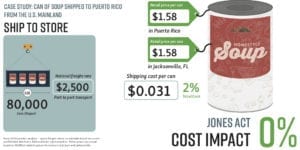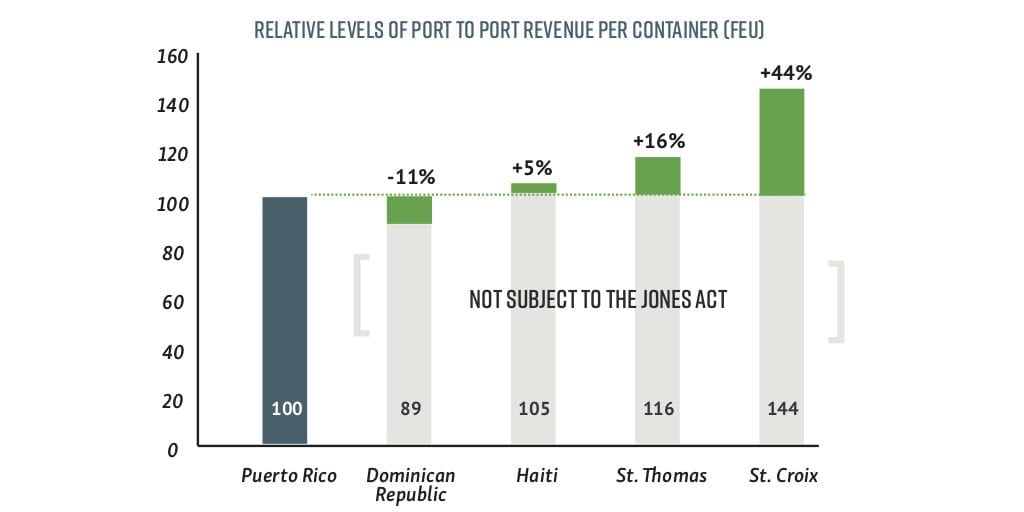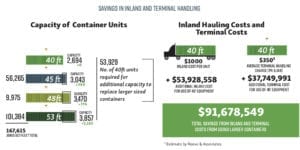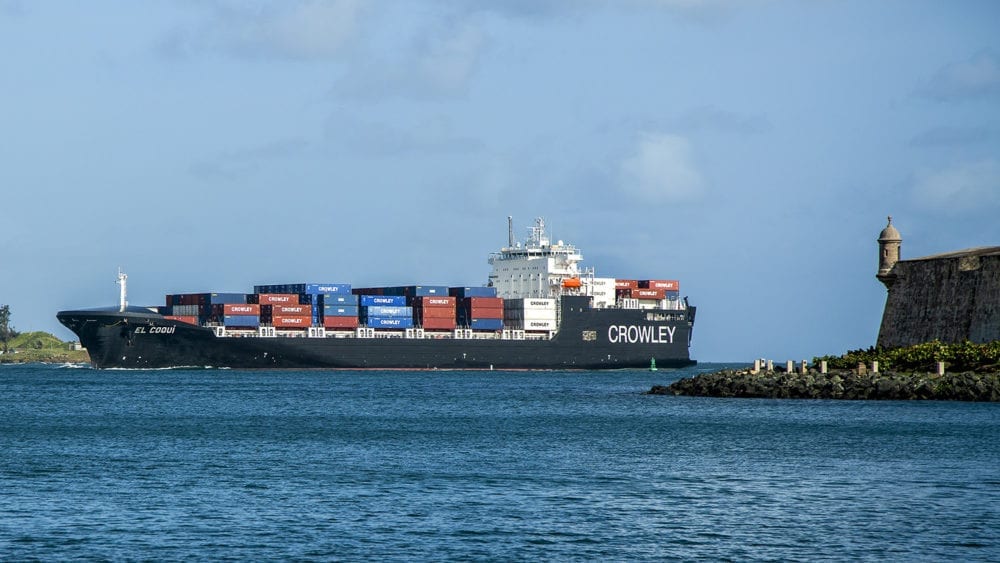A handful of opponents of the American maritime industry are gathering this week at the CATO Institute. The focus of that program is a pair of reports released in February (“Dunham” and “ABC”) that claim a high cost to Puerto Rico from using American / Puerto Rican ships instead of foreign / Chinese ships to move cargo between Puerto Rico and the US Mainland. The panelists will likely try to outdo each other to claim a “cost” of using Puerto Rican ships that is astronomically high.
The claims in the Dunham-ABC reports are nonsense. The link here summarizes the most glaring errors. Both reports were funded by the same opponents of Puerto Rican shipping, yet there are major differences between them. The purpose behind the Dunham report – which included no original data – appears to have been to produce an absurdly high economic “impact” figure without conducting a defensible economic analysis of marine logistics in the Puerto Rico market. While the ABC report includes at least some original data, that data is either wrong, cherry picked or irrelevant, and the report is otherwise riddled with errors.
What the two reports have in common is a complete lack of credibility. Opponents of Puerto Rican shipping will nevertheless parrot their conclusions at every opportunity. This includes Cato, which is funded primarily by certain oil and gas interests seeking to eliminate the American maritime industry. Cato will uncritically promote these reports not because they reveal any truth (they do not), but because they align with Cato’s crusade. While Cato has no particular interest in Puerto Rico, it is more than willing to use these reports to advance its own efforts. Given the historically serious needs Puerto Rico faces following the debt crisis and Hurricane Maria, it would be a monumental shame if Puerto Rico plays along with Cato and squanders its political capital in pursuit of changes to shipping laws that would do it more harm than good.




Reeve-ETI then provided compelling reasons why that is the case, based on a thorough understanding of marine transportation and logistics. It showed that freight rates reflect a basket of costs that go far beyond the vessel itself, including trucking, rail, equipment, warehousing, stowage, stevedoring, and sales and administrative overhead – as well as vessel costs that are the same regardless of vessel flag, such as fuel, port charges, harbor assist, etc. Vessel capital and operating costs are the only items in that basket that are higher for Puerto Rican ships than for foreign ships. And those vessel costs account for a very small portion of the total supply chain costs in a container shipping service. It is not surprising that freight rates which reflect all such costs would not be significantly different based on the vessel’s nationality.


Cato and other opponents of American maritime may reject Reeve-ETI because the study was sponsored by American maritime supporters and based on data supplied by carriers in the trade (who are the best source of this data). Exactly the same thing could be said of the Dunham and ABC reports, which were sponsored by opponents of American maritime. The same is certainly true of Cato’s crusade against the American maritime industry. Ad hominem attacks amount to a pox on all studies, since they are all sponsored by someone with an economic interest in the studies’ conclusions. The one exception to this in recent years is a GAO report issued in 2013, which found for a variety of reasons that the economic impact of replacing American ships with foreign ships would be “highly uncertain.”
Bottom line – it is the merits of the studies that matter, not who sponsored them. The economic impacts claimed in the Dunham and ABC reports are patently absurd. Changing the shipping laws to allow Chinese ships to replace Puerto Rican ships in this trade would produce no benefit to Puerto Rico. It would instead destroy the high-quality service Puerto Rico receives today, cost thousands of American jobs and hurt our national and homeland security. In the words of Hamilton, Puerto Rico should “not throw away its shot” on this issue. It should instead look for real solutions to the very serious challenges it is facing.
About the Author: Michael Roberts is a Senior Vice President for Crowley Maritime Corp., and Vice President of the American Maritime Partnership. He has been involved in Puerto Rico shipping and economic issues for more than 25 years.



Comments are closed.